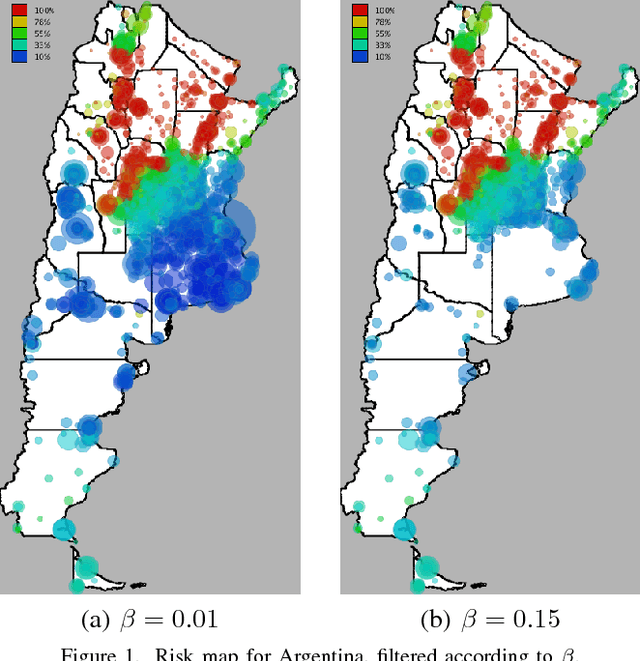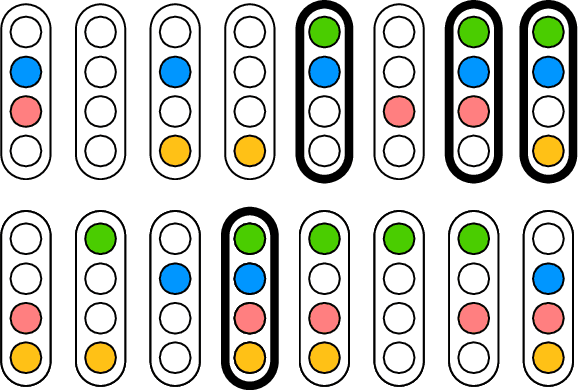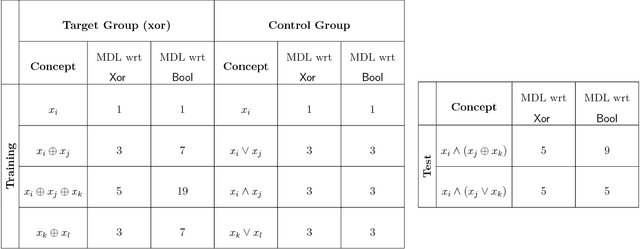Alejo Salles
Uncovering the Spread of Chagas Disease in Argentina and Mexico
Aug 09, 2018

Abstract:Chagas disease is a neglected disease, and information about its geographical spread is very scarse. We analyze here mobility and calling patterns in order to identify potential risk zones for the disease, by using public health information and mobile phone records. Geolocalized call records are rich in social and mobility information, which can be used to infer whether an individual has lived in an endemic area. We present two case studies in Latin American countries. Our objective is to generate risk maps which can be used by public health campaign managers to prioritize detection campaigns and target specific areas. Finally, we analyze the value of mobile phone data to infer long-term migrations, which play a crucial role in the geographical spread of Chagas disease.
Learning is Compiling: Experience Shapes Concept Learning by Combining Primitives in a Language of Thought
May 17, 2018



Abstract:Recent approaches to human concept learning have successfully combined the power of symbolic, infinitely productive, rule systems and statistical learning. The aim of most of these studies is to reveal the underlying language structuring these representations and providing a general substrate for thought. Here, we ask about the plasticity of symbolic descriptive languages. We perform two concept learning experiments, that consistently demonstrate that humans can change very rapidly the repertoire of symbols they use to identify concepts, by compiling expressions which are frequently used into new symbols of the language. The pattern of concept learning times is accurately described by a Bayesian agent that rationally updates the probability of compiling a new expression according to how useful it has been to compress concepts so far. By portraying the Language of Thought as a flexible system of rules, we also highlight the intrinsic difficulties to pin it down empirically.
 Add to Chrome
Add to Chrome Add to Firefox
Add to Firefox Add to Edge
Add to Edge